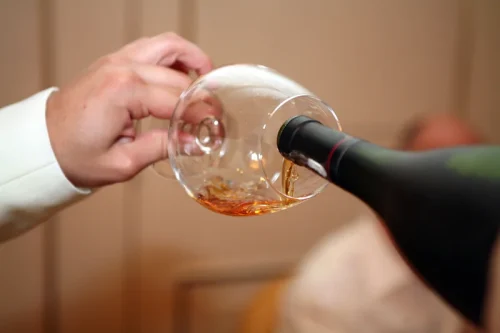Eliquis apixaban: Side effects, dosage, uses, and more

If both medicines are prescribed together, your doctor may change the dose or how often you use one or both of the medicines. Tell your doctor if you have ever had any unusual or allergic reaction to this medicine or any other medicines. Also tell your health care professional if you have any other types of allergies, such as to foods, dyes, preservatives, or animals. For non-prescription products, read the label or package ingredients carefully. If you or someone you love is struggling with alcohol addiction, professional treatment at a licensed rehab facility can help.
- However, water retention typically causes swelling that’s known as edema.
- The insurance company will review the prior authorization request and decide whether the drug will be covered.
- Keep reading to learn about the common, mild, and serious side effects (also called adverse effects) that Eliquis can cause.
- To get a clearer picture of the health effects of alcohol, researchers and journalists must be far more attuned to the nuances of this highly complex issue.
- INR is used to describe the results of a lab test called prothrombin time (PT).
More About Drugs and Medications
The process of your blood clotting is called coagulation. Anticoagulants such as Eliquis make your blood less able to form clots. The combination of alcohol and Eliquis can significantly increase your risk of bleeding. This effect can be quite concerning, especially when considering the prolonged presence of Eliquis in the body due to alcohol consumption. Eliquis can cause serious, life-threatening, or even fatal bleeding. Taking Eliquis with other medications that affect bleeding/clotting increases the risk even further.
Can stopping Eliquis treatment suddenly cause side effects, such as withdrawal symptoms?
If you’re pregnant or breastfeeding, or planning to become pregnant or breastfeed, talk with your doctor. They’ll discuss https://ecosoberhouse.com/ whether Eliquis may be a safe treatment option for you. There aren’t any known interactions between Eliquis and alcohol.
Eliquis side effects and how to avoid them
Alcohol use should be limited while using Savaysa because it increases the risk of internal bleeding. While some alcohol use may be permissible in certain situations, you should consult with a doctor or pharmacist about your specific situation. Mixing alcohol and Eliquis may increase the risk of bleeding events, particularly gastrointestinal bleeds.
Appropriate studies performed to date have not demonstrated geriatric-specific problems that would limit the usefulness of apixaban in the elderly. Appropriate studies have not been performed on the relationship of age to the effects eliquis and alcohol usage of apixaban in the pediatric population. Plavix increases the risk of stomach bleeding when coupled with daily alcohol use. Alcohol use should be limited while on Plavix, and specific cases should be discussed with a doctor.
Eliquis Interactions with Supplements, Foods, and Alcohol
Pradaxa and Eliquis are FDA-approved medications known as direct oral anticoagulants (DOACs), non-vitamin K antagon… You have probably experienced some unpleasant side effects if you’ve mixed drinking with prescription medicat… It is not uncommon to want to transition from one anticoagulant drug to another. Other medications in this category include Xarelto (rivaroxaban), Savaysa (edoxaban), and Arixtra (fondaparinux). If you still have questions about Eliquis and its possible interactions, talk with your doctor. Taking Eliquis exactly as prescribed can also help prevent interactions.

When prescribed Eliquis, it’s crucial to be aware of potential drug interactions that may impact its effectiveness and your safety. This guide outlines key eliquis drug interactions, including common medications and dietary factors that may alter Eliquis’s anticoagulant effects and increase bleeding risk. Keep reading to learn how to manage these interactions for optimal therapy outcomes. Taking Eliquis can raise your risk of bleeding with certain surgical, medical, or dental procedures. To reduce your risk of bleeding, your doctor may recommend stopping Eliquis for a few days beforehand. If you’re planning to have a procedure, ask your doctor if you’ll need to stop taking Eliquis.
Alternatives for preventing DVT after a hip or knee replacement
Their use must be carefully monitored to ensure that the blood does not become too thin. As many as three million people take blood thinners each year, but some may not be aware of how these medications interact with substances like alcohol. On their own, blood thinners can create a number of health risks and increase the chances of serious bleeding. When combined with alcohol use, however, the risks become much more severe. You may need to stop taking Eliquis temporarily before certain surgical, medical, or dental procedures. In this case, your doctor will tell you when to stop Eliquis and when to start taking it again.
Eliquis interactions with food
- If you still want to go ahead, talk to your doctor about your specific risks in case you need antibiotics.
- However, if your symptoms seem life threatening, call 911 or your local emergency number immediately.
- The drug warfarin (Jantoven) has uses similar to those of Eliquis.
- This can lead to the same harmful effect of excessive anticoagulation.
The impact of cannabis may affect how well you stick to your Eliquis treatment plan. Taking Eliquis with an SSRI or SNRI can increase the risk of bleeding. Taking Eliquis with a thrombolytic can increase the risk of bleeding. If your doctor determines that it’s safe for you to take an NSAID with Eliquis, tell them right away if you have symptoms of bleeding.


According to the American Blood Clot Association, one study showed that the alcohol content in 1 or 2 drinks could potentially decrease blood clotting. Eliquis also has other warnings, side effects, and drug interactions. Before taking Eliquis, talk to your healthcare provider about all of your medical conditions and medical history to make sure Eliquis is safe for you. Tell your physician about all of the medications you take, including prescription medicines, over-the-counter drugs, and vitamins or supplements. If you have a bleeding problem or take other medications that can affect blood clotting, talk with your doctor about whether Eliquis is right for you.
